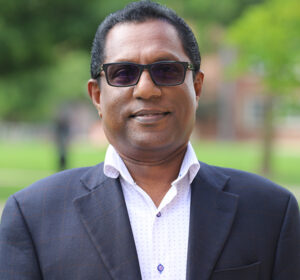Course Overview
Artificial Intelligence (AI) is transforming the way we live, study, work, and interact with technology. This summer program offers an immersive experience in AI application development, equipping students with the knowledge and skills to develop, and deploy AI-powered applications in various domains, from healthcare and finance to entertainment and social media. Through a combination of hands-on projects, lectures, and collaborative learning, students will gain a deep understanding of AI technologies and their practical applications.
This course is designed for high school students who are passionate about AI and want to gain practical skills in AI application development. It will prepare students to embark on a journey into the exciting world of AI and make a significant impact on the future of technology. Students will also be well-versed in the ethical considerations of AI development, setting the foundation for responsible and innovative AI solutions.
Join us this summer for a transformative learning experience in AI application development.
All students who successfully complete the course will receive a Certificate of Completion and have the opportunity to request a Syracuse University noncredit transcript.
Learning Objectives
- Broaden student’s knowledge and skills in Artificial Intelligence with hands-on projects.
- Gain practical experience in developing functioning AI systems through Python based exercises.
- Explore some AI models that helps machines “learn” and make decisions.
- Understand the fundamental concepts of supervised and unsupervised learning.
- Learn how to collect, clean, and preprocess data for AI applications.
- Apply this knowledge to build and deploy simple AI projects, such as predictive models
- Understand the ethical considerations in AI applications and the importance of designing AI systems responsibly.
- Gain insights into potential career paths related to AI
Course Information
Course Prefix and Number: SCN 156
Format: On Campus (at Syracuse University)
Eligibility: Students must be of rising high school sophomore, junior or senior status – or a 2026 high school graduate.
Credit: Noncredit
Grading: Pass/Fail
- Residential: $4,995
- Commuter: $4,024
Program rates are subject to change and will be approved by the board of trustees. Discounts and scholarships are also available.
Program Information
Summer College – On Campus: Experience what college is really like: take a college-level course, live in a residence hall, have meals with friends in a dining hall, and participate in activities and events on campus.
Course Dates and Details
| Program | Course Dates | Class Time (Eastern Time) | Credit/Noncredit |
|---|---|---|---|
| Summer College – On Campus | 2-Week Session I: Sunday, July 5 – Friday, July 17, 2026 | MTWThF; 9 a.m. – 4 p.m. | Noncredit |
To see if this course is ‘open,’ refer to the full course catalog.
Course Requirements
Required Supplies/Knowledge
Please know that any supply purchases are not included in the overall tuition fee. Students will need to budget for additional course supplies, textbooks, supply kits, etc.
All students are required to have their own laptops with a minimum of 8 GB RAM for handling larger datasets and complex models and a solid-State Drive (SSD) with at least 256 GB of storage for faster data access and model training.
Students should also have basic programming knowledge (Python preferred but not required), and a strong desire to learn and explore the world of AI.
Typical Day
Tentative Schedule
A typical day might include a structured schedule with a mix of lectures, classroom activities, hands-on coding, project work, and breaks for relaxation and reflection.
During a classroom instruction time block, there will be a field trip to AI industry where students are introduced to AI professionals and career opportunities.
Faculty Bio
Saman Priyantha Kumarawadu

Dr. Priyantha Kumarawadu is an Associate Teaching Professor in the Electrical Engineering and Computer Science (EECS) department at Syracuse University. His research interests broadly lie in the areas of artificial intelligence, machine learning and Internet-of-Things (IoT), focusing on the application of deep learning and AI algorithms in developing new methodologies for real-time decision making to solve challenging real-world problems. Building deep learning-based software to make real world impact in the areas of health, agriculture, and education is one of the primary objectives of his research. He further extends his research to explore the impact of artificial intelligence in social, economic and cultural context, and the usage of machine learning to secure IoT infrastructures in various application domains such as smart homes, smart health, and smart wearables.
